Is Your Spare Room Your New Side Hustle?
It’s no exaggeration to say that Airbnb has revolutionised the way we travel. Since its launch in 2008, the website has built up a portfolio of more than six million listings across the world and the company now estimates that an average of two million people stay in an Airbnb property each night (yes, you read that right!). Like us, you’ve probably relaxed in a beautiful apartment when on a city break in Europe, enjoyed a family-friendly beach-side villa in the summer holidays or even shared someone else’s house as part of a work trip – all thanks to Airbnb. But have you ever considered using the website in another way? Renting out a spare room in your house can enable you to make a little bit of extra income and meet different kinds of people, and many hosts say it’s the best thing they’ve ever done.
Catherine Martel is one such person. She’s been renting out the spare rooms of her beautiful house in south west London (see her listings here and here) for four years now and says it’s changed her life hugely.
“I had been in the hotel business for years both in operations and in corporate communications but with young children, the hectic travel schedule was not ideal. Mounting bills, and the long days alone at home with only my little ones for company were strong motivators to look into Airbnb,” she explains. “I was looking for something that was flexible, social, lucrative and most importantly, that I could do at home and work around my kids' schedules. I tentatively started renting out my guest room and everything started rolling from there. Now nearly four years down the line, we spend most of our holidays abroad thanks to the rent collected by letting out the house and I get to meet people from all over the world.”
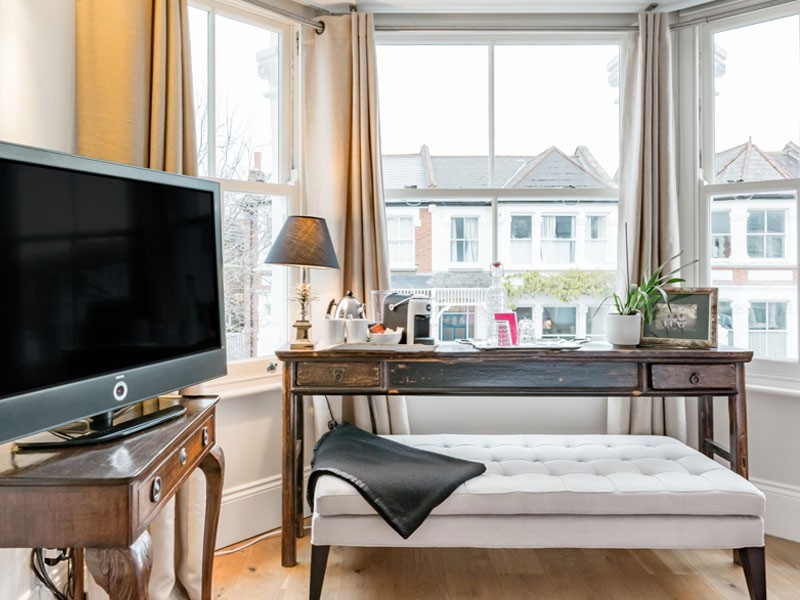
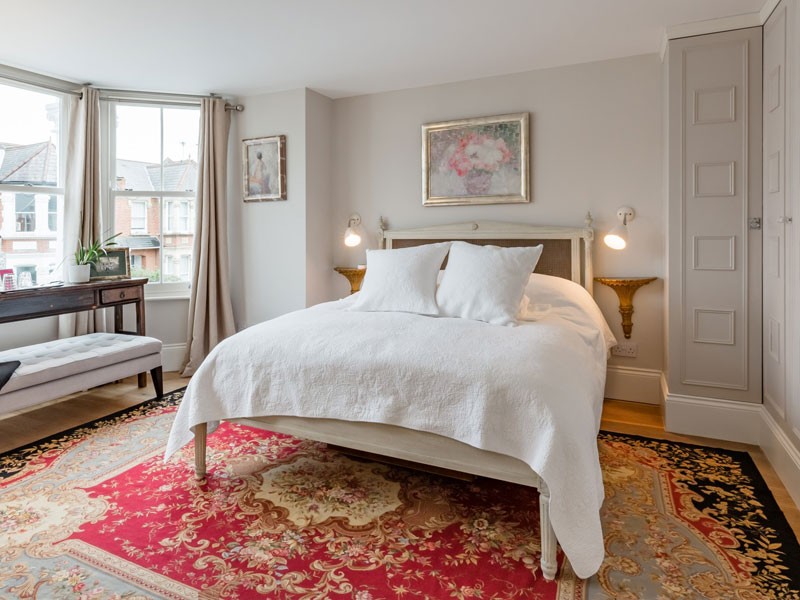
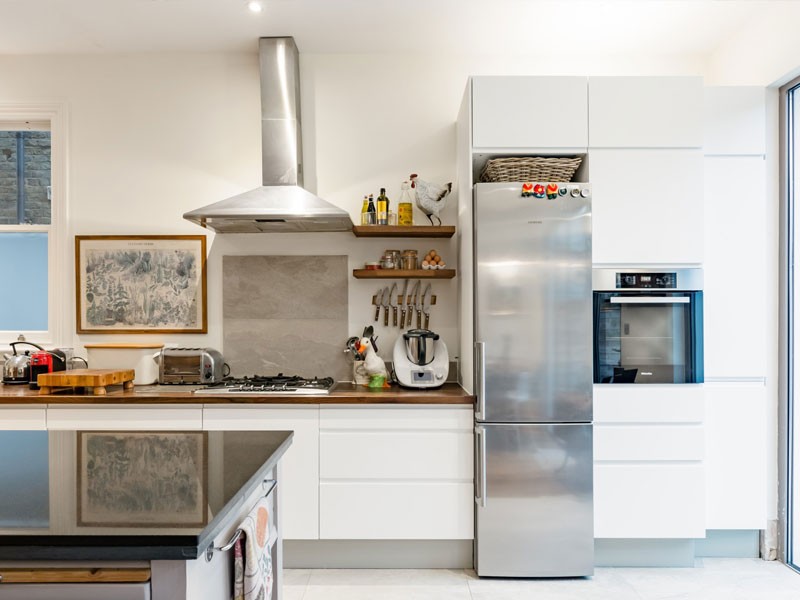
Interested in trying it yourself? Here’s what you need to know…
It’s easy to get started.
Luckily, websites like Airbnb are made to be user-friendly, and to become a host you really just need to have some good pictures of your spare room and house. The good thing about Airbnb is that you call the shots - you can block off dates in the calendar when you don’t want guests, for example, and you can choose whether to allow people to book instantly, or be approved by you first. Listing is also free – and Airbnb simply takes a small cut from your incomings (usually 3%) and charges the guest a service fee too.
Experience new cultures in your own home
As well as earning a little bit of extra money, you want the process to be fun, right? And it really can be. “We have only only had very good experiences with Airbnb,” Catherine says. “I had a very international childhood with parents moving from one continent to another for their careers. I found it a hugely enriching experience despite the obvious upheaval it caused us as children. Thanks to Airbnb, I have been able to introduce my children to different cultures in the comfort of our own home. They now have friends their age from Russia, India, Brazil, China, India and the US.”
Be prepared to share your space
If you’re renting out your spare room, you’ve got to be ready to share other spaces including your living room, kitchen and bathroom. And that can mean quite a lot of cleaning. If you’re a natural hoarder and not very tidy, this could be slightly tricky but if your house is generally in good nick and you keep it orderly, this may not be too much of a problem.
“I can only say good things about Airbnb and would encourage anyone to try it. I would warn though that it is quite a bit more work than you might think,” Catherine says. “You must be vigilant and read past guest assessments, and be prompt and responsible with communication. And, of course, you must make sure rooms are tidy and the house looks spotless at all times.”
All sorts of scenarios
On the whole, most Airbnb hosts say they have very few problems. And if you’re only renting out a room – rather than a whole house – you limit the chances of things going drastically wrong (we’ve all heard the horror stories about parties being thrown in properties without the owners knowing). However, you should be prepared to deal with all sorts of scenarios.
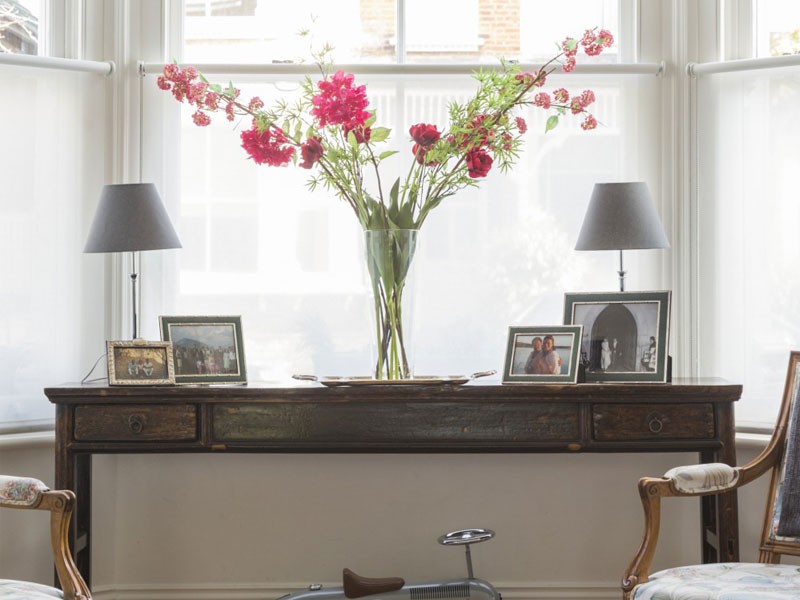
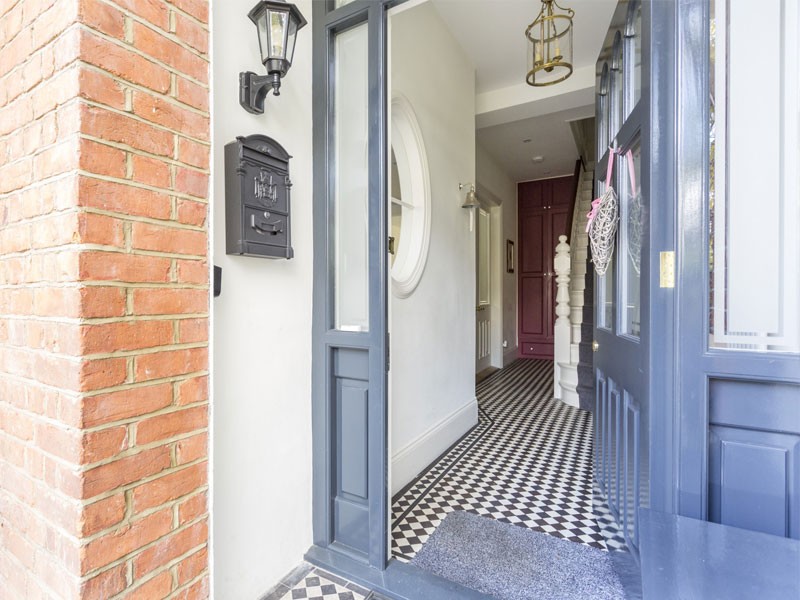

Keep track of your finances
As an extra income, renting out your spare room may raise certain tax implications. However, this is fairly easy to get to grips with, says money coach Claire Sweet, who helps women understand their finances at Peace Together Money Coaching.
“If the income you get over the year is less than £7,500 in the tax year 2019-20 you don’t need to declare the income or complete a tax return as part of the Government’s Rent-a-Room scheme,” she advises. This scheme (which you have to opt into) applies to people who are renting a room in their main residence - not their entire home.
“If the income is greater than £7,500, you should register as self-employed through the HMRC gateway and be prepared to pay tax on your earnings,” Claire adds. “Keep a record of rental payments in, and related expenses (for example the costs of laundry, cleaning and bills) and add this to your tax return. You can keep the records using accounting software such as QuickBooks or Xero, on a spreadsheet, or even in a notebook – and should keep them for a minimum of six years after the end of the financial year. If you choose this route you will also be able to claim for the costs of periodic redecoration or the replacement of furnishings if worn or damaged.”
There are some limitations
If you are a home-renter yourself, it’s unlikely that you’ll be able to let a room out as most landlords include a ban on subletting (even on a short-term basis) in their tenancy agreement.
“If you have a mortgage, you should check with them whether they allow you to rent a room out on a temporary basis or not,” Claire adds. “This is not the same as subletting on a permanent basis so you don’t need an official ‘consent to let’ form, but failure to inform them could be seen as a breach of your mortgage conditions and theoretically cause them to call in the loan. In practice, many high street lenders are ok with this as long as it’s only one room and not on a permanent basis with a single tenant.
Don’t forget about your insurance either. “Check whether you’re covered to have paying guests, because otherwise if you have a problem you might not be able to claim,” Claire says. “You may want to increase your cover to include accidental damage on both buildings and contents and find that you need to pay a larger excess in event of a claim.”
If you’re in Greater London, it’s also worth knowing that you’re only able to let properties on a short-term basis for a maximum of 90 days in any 365-day period, and Airbnb limits entire home listings with this in mind. If you go over this, it’s considered a ‘change of use’ and you have to apply for planning permission.
*Please be aware that this is only a brief overview of some of the things you should be aware of when renting out a spare room. We recommend you read Airbnb’s terms and conditions properly, and also do some research of your own. More information about how to be a responsible host can be found here.
DISCLAIMER: We endeavour to always credit the correct original source of every image we use. If you think a credit may be incorrect, please contact us at info@sheerluxe.com.


